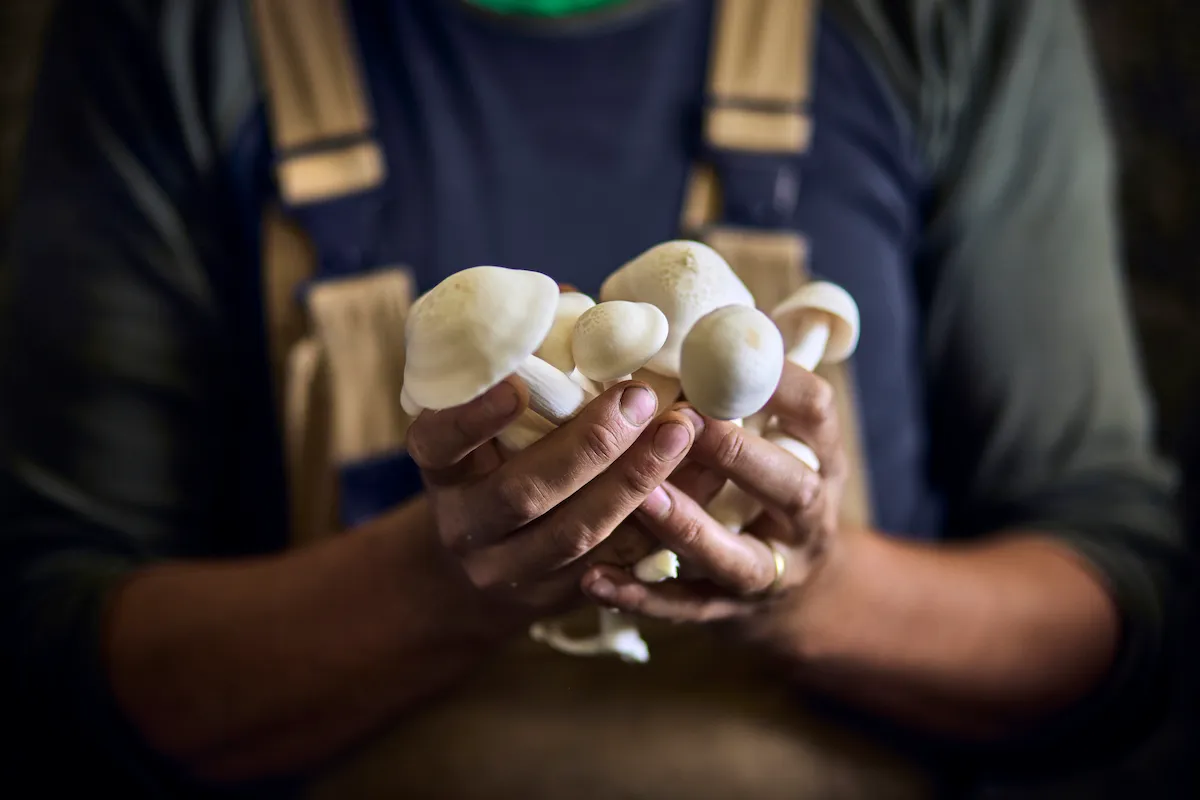

Beginning mushroom foragers are often told to start with the “foolproof four,” or four types of mushrooms that are supposedly incredibly easy to identify. As always, remember to take caution and really be sure of what you are picking. Even the “easiest” mushrooms still require careful study and effort to ensure you have the correct one before eating. Do not consume any mushrooms in the wild without expert guidance.
Videos by Outdoors
The Foolproof Four
- Chanterelles
- Chicken of the Woods
- Giant Puffballs
- Morels
Chanterelles
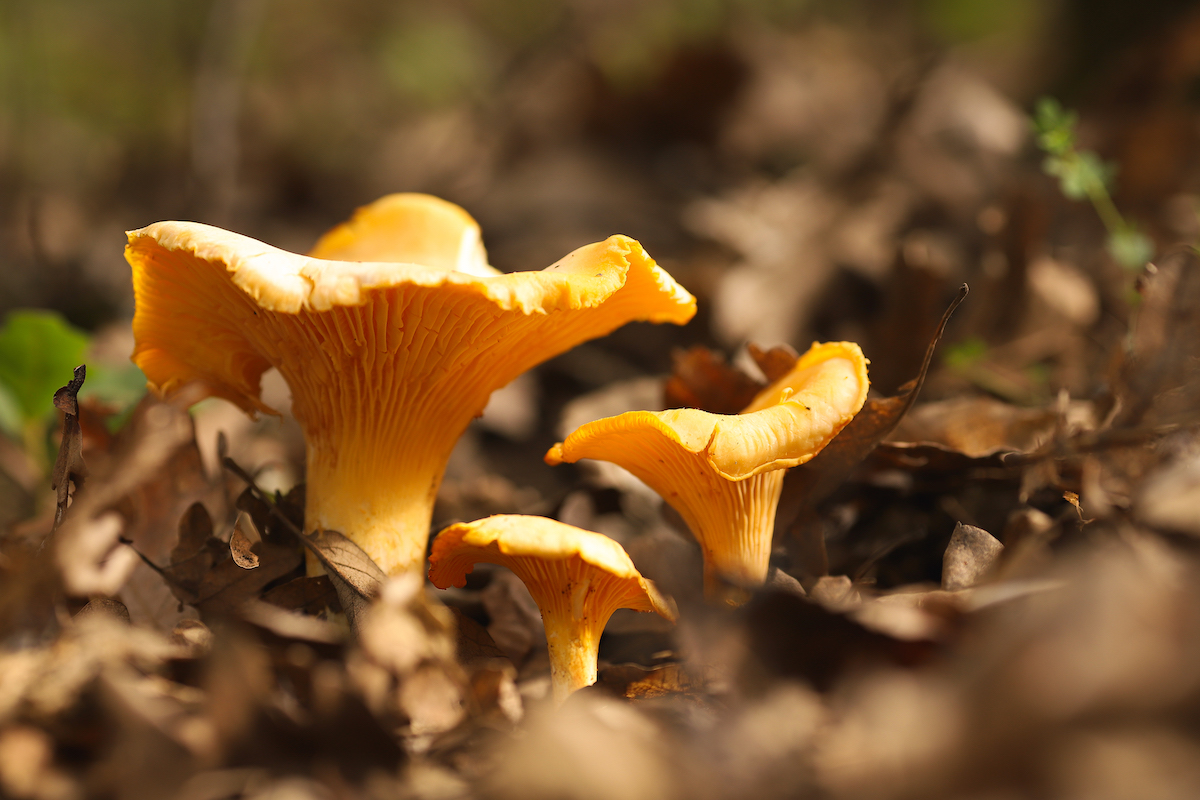
Chanterelles are a great edible mushroom for beginning foragers. They’re easy to spot because of their bright color, which ranges from orange to pale gold. They’re also distinctively shaped, with a narrow stem and a wiggly “hat.” Chanterelles have a rich and delicate, fruity taste, and can be quite expensive, so learning to forage them could provide very useful for evening meals.
Chicken of the Woods
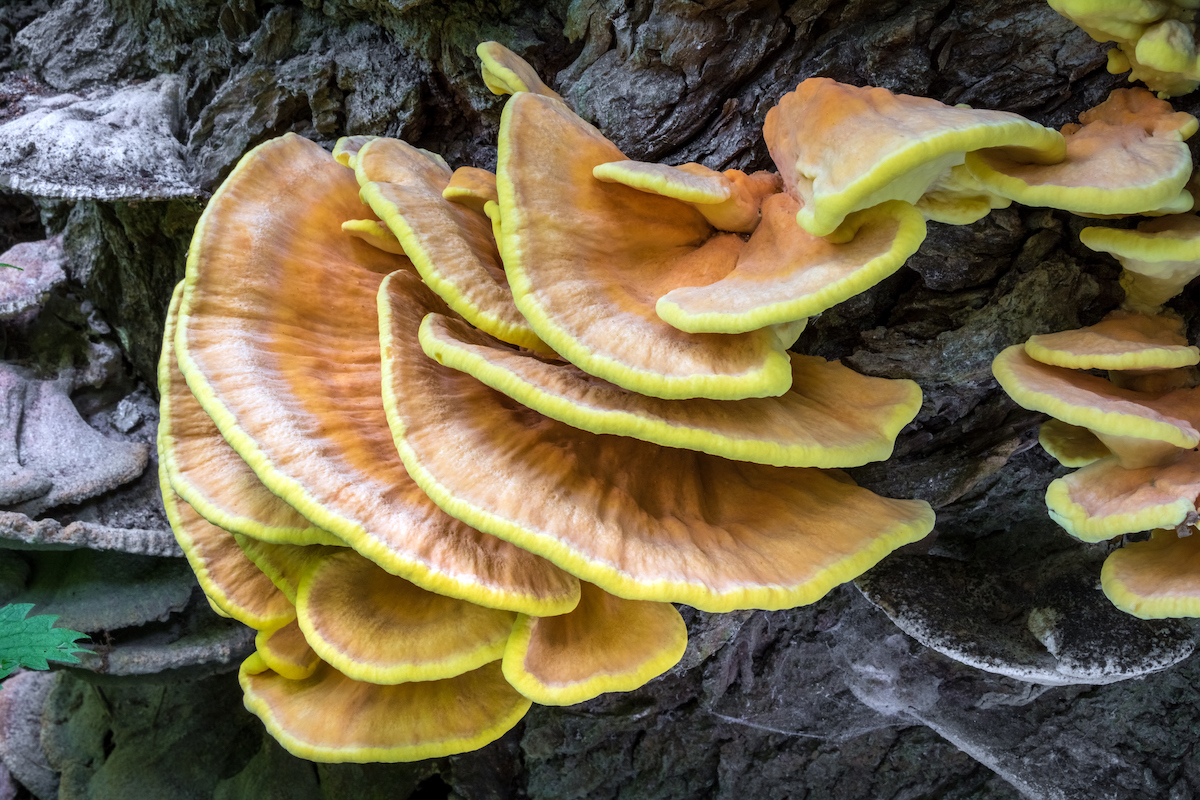
Yes, they do taste like chicken. Chicken of the woods mushrooms, are an orange-like fungus found on trees that are diseased or wounded. They tend to grow in clusters, or a “shelf.” Typically, you only eat the edge of the fruiting body, as the rest of the mushroom can be tough.
Look for young mushrooms that are bright orange with smooth undersides that are rubbery. When they’re older, they turn chalky and are not good to eat. You can find chicken of the woods mushrooms on oaks, yew, willow, and some conifers. Prepare them just like chicken.
Puffballs
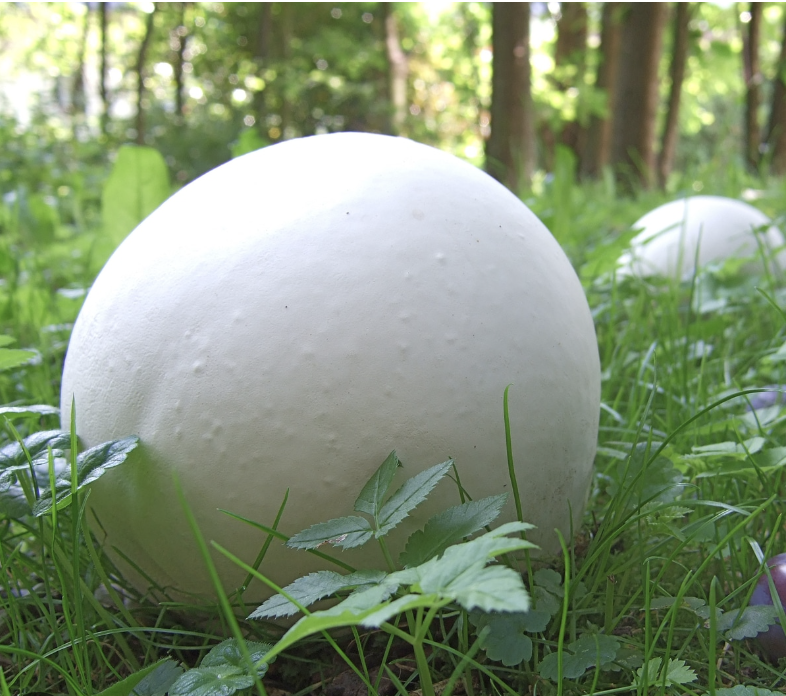
This unique sphere mushroom has no open spore cap. Varying in size, big or small, when you kick or squeeze a mature puffball, a dust cloud of spores appears. Most puffballs are safe to eat. Avoid any that are yellow or purple under the white skin, they should be fully white.
Some people prefer to avoid both the dog-turd fungus and the wolf-fart puffball, both of which are real puffballs, we’re not kidding. Puffballs are commonly referred to as “breakfast mushrooms” because they go so well with eggs.
Sadly, puffballs do have a deadly look-alike — young death cap mushrooms, which are as lethal as their name, can resemble a puffball, and are also low to ground and round.
The simple trick is to cut a young death cap in half, and you will see the difference. Always cut them in half first to check:
- Death Cap: you will see the developing gills and stem
- Puffball: no stem no gills but uniform white flesh
Morels
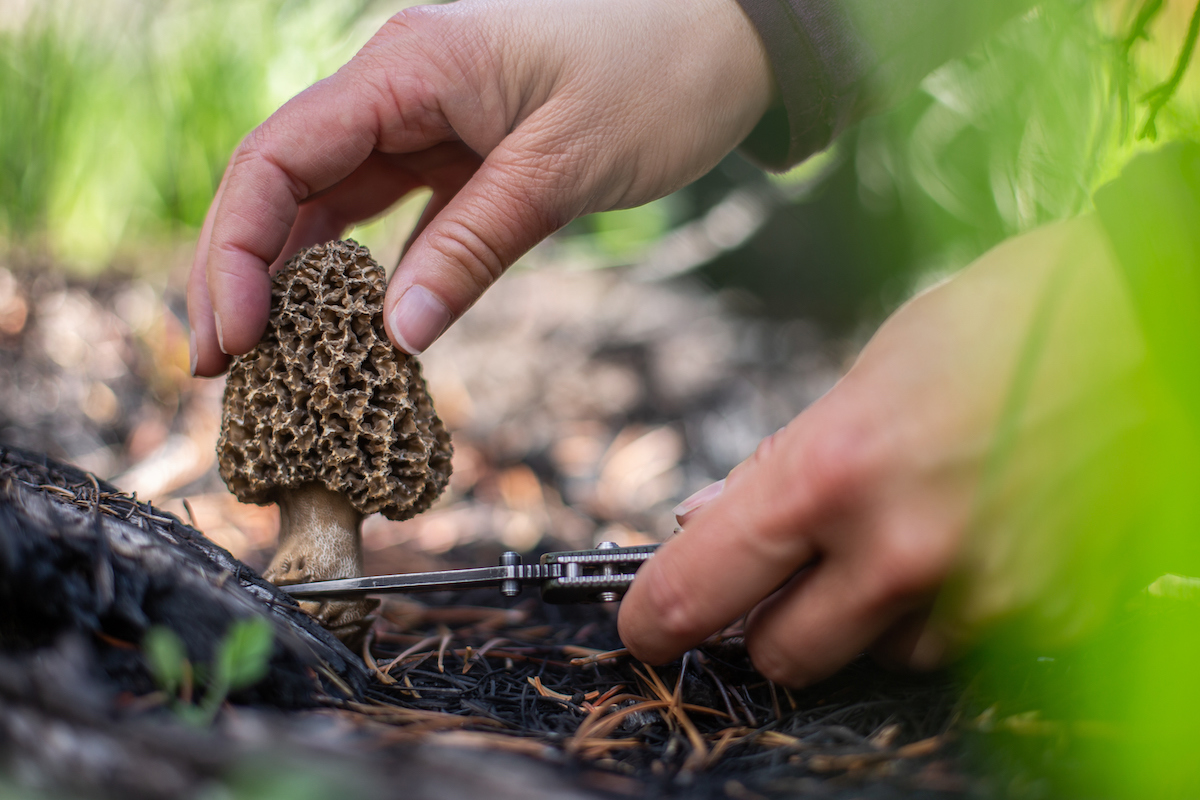
Morels are wild mushrooms that are easy to identify and taste delicious. They have a short season, sometimes just a few weeks in the spring, but they can grow through August in higher elevation areas in the Pacific Northwest near conifers.
Look for morels near trees and in moisture-rich areas, like recently dead elms or near apple orchards. Other morel magnets include ash, cottonwood, sycamore, and tulip poplar.
The morel cap is recognizable by its conical and honeycombed ridges. Typically one to three inches, they vary in color and may be white, golden, gray or black, but only with white stems. When cut in half vertically, morels are completely hollow.
Ready for more advanced mushroom foraging? Check out THE ULTIMATE GUIDE TO FINDING MUSHROOMS OUTDOORS.
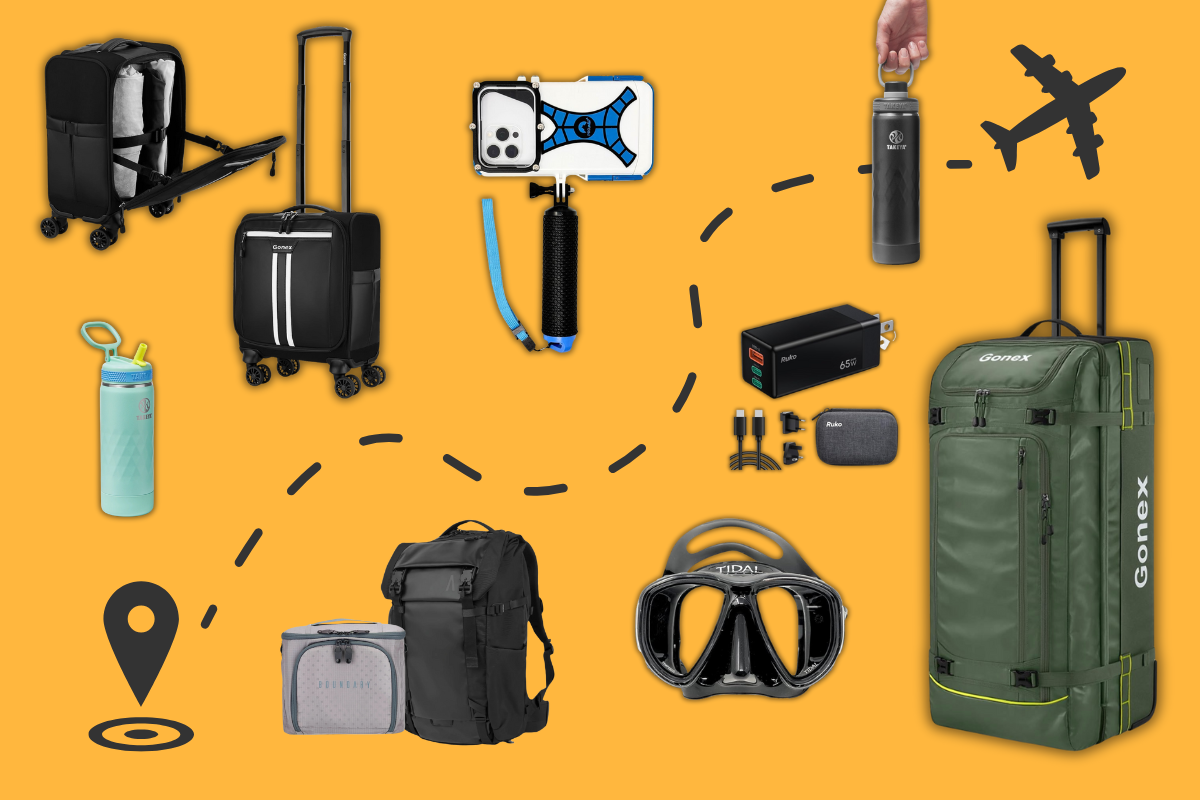
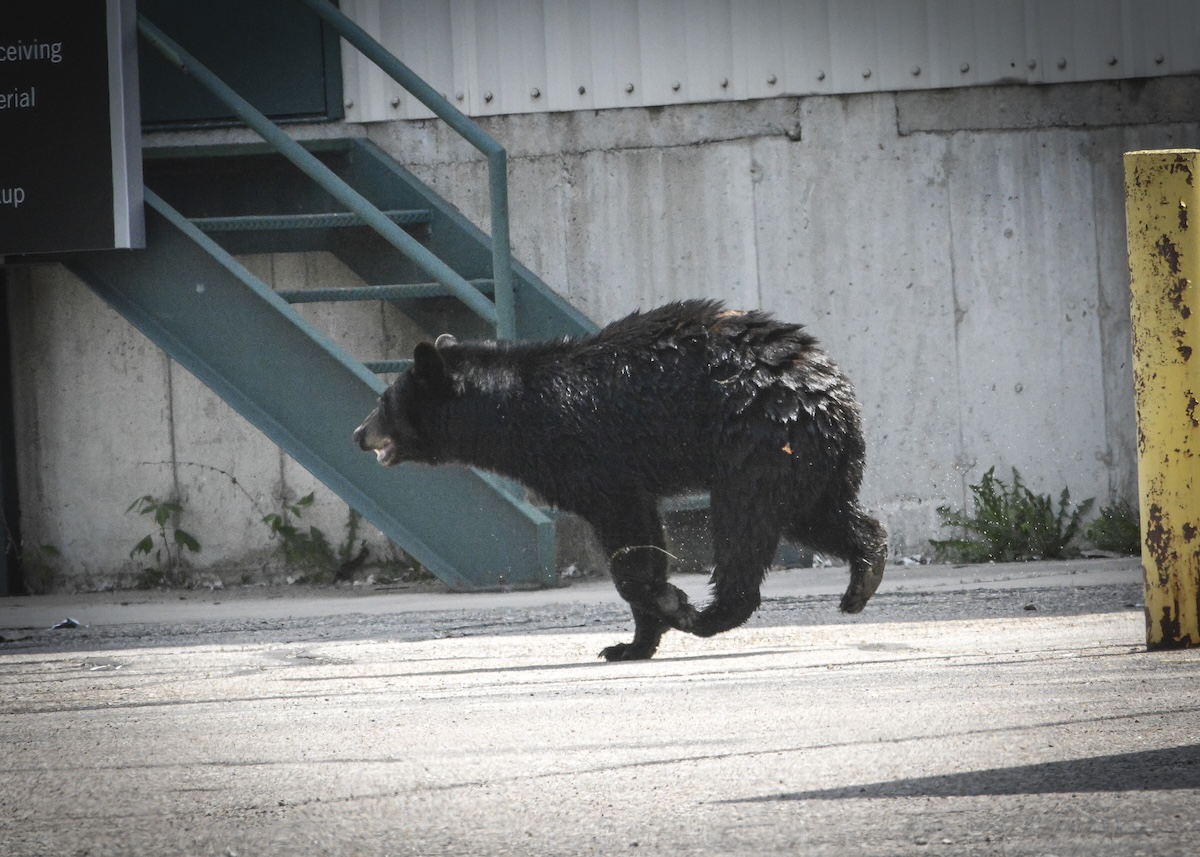


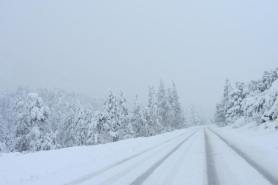





Thank you, I’ve been picking mushrooms all my life, taught by my dad, but in a safe way, sticking to oak trees mainly, I have a question when I was young I saw my dad boil mushrooms in copper penny and knew if a certain mushroom was bad back in WW2 generation they didn’t have google or broadcast mushroom picking how they knew what to pick amazed me my father would come home with a garbage pail full of mushrooms new Paul that is I never asked did you hear of that boiling with copper penny?
I have to disagree with 3 of these 4. Hen of the Woods, Black Trumpets, and Oyster mushrooms are far easier and safer. As are any with tooth like gills such as Lions Mane and Hedgehog.
There are many orange mushrooms similar to Chanterreles, morels have a lookalike and puffballs go bad quickly and can be mistaken for others.
Love that you have likeley poisonous ones on the article covwr
Yes I noticed that too. White gilled mushrooms should be avoided.
You should be giving information on things you don’t know, 1st never co sume a wild mushroom if your not a expert. 2nd 2 of these have lookalikes thar are poisonous. Chantelle have the jack o laten mushroom, the morels have false morels, a true morel is hollow and puffballs wow I personally wouldn’t eat these, oysters and lions mane are the easiest but ballots are the only thing a novice should be picking and consuming. They down have gills, more like a sponge or Cornish. Please refresh your article to include there are lookalikes
Mention to not destroy the mycelium at the base of the mushroom!
Shaggy mane is one easy to find and identify and delicious
It isn’t very clever to mention picking chicken of the woods from the highly possible Yew tree….
Also totally agree that leaving out dangerous lookalikes like the false morel, jack-o-lantern, etc. is verging on neglectful, especially as this article is aimed at beginners.
I say this as a survival instructor and “expert” forager of 30 years.
Please do amend this, or put a bigger, brighter warning at the top of it.
Total smoke screen for content. Mycology is complicated. Join a mycology society. Studying is the only real way to know what your talking about. Dumb to think there are any short cuts. Who wrote this? Not an actual survivalist. Get a clue, get actually educated.
I’m still learning from you, but I’m making my way to the top as well. I certainly love reading all that is written on your site.Keep the stories coming. I loved it!